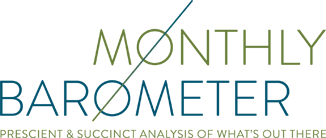
5 insightful op-eds or articles to help make sense of today’s world
Heather Timmons, “China’s growing food demands stoke fears of a global factory farming boom”
(Quartz, June 25, 2014)
It is estimated that by 2030, China will import almost one-third of all food available in the world (up from 4% in 2007). China’s appetite for imported food is indeed growing at an amazing pace, documented in the many links included in the article. Increasingly, nations will have to balance the economic benefit of growing food for China with the potential environmental effects that it entails.
http://qz.com/225182/
Marc Andreessen, “Robots will not eat the jobs but will unleash our creativity”
(Financial Times, June 23, 2014 – metered paywall)
Yet another contribution to the critical debate about how robotisation might displace jobs and create employment (or unemployment). The famous investor develops a “techno-optimist” version of tomorrow’s world, arguing that, as automation becomes abundant and cheap, human experience becomes rare and valuable. In his own words, he is “long on human creativity”.
http://www.ft.com/intl/cms/
Parag Khanna, “A World Reimagined”
(The American Interest, June 26, 2014)
A longish essay published on the occasion of the centennial of World War 1. As many commentators claim that we stand on “the cusp of another calamitous 1914 moment”, Parag argues that, if we intend to apply supposed lessons from the centennial cycle, “1814 is more relevant than 1914”. He points to the current “geopolitical fluidity”, reminiscent of the 19th-century concert system; and sees “a world of strong states but no clear global hierarchy”. He essentially argues that there is no single global order, but diverse regional orders.
http://www.the-american-interest.com/
Justin Fox, “Instinct Can Beat Analytical Thinking”
(Harvard Business Review Blog Network, June 20, 2014)
This is an interview with Gerd Gigerenzer, a psychologist who spent his career focusing on the ways in which we get things right. In his view, we often confuse the world of uncertainty with that of calculated risk, but gut feelings help as “tools for an uncertain world”. He argues that using heuristics, rules of thumb, and other shortcuts often leads to better decisions than the models of “rational” decision-making developed by mathematicians and statisticians.
http://blogs.hbr.org/2014/06/
Drake Bennett, “Clayton Christensen Responds to New Yorker Takedown of ‘Disruptive Innovation’”
(Bloomberg Businessweek, June 20, 2014)
This is Christensen’s response to the article from Lepore criticizing his theory of “disruptive innovation” that we posted last week. Nicely articulated throughout, but it is hard not to think about the quote attributed to Kissinger: “academic politics are so vicious because the stakes are so small”!
http://www.businessweek.com/articles/
